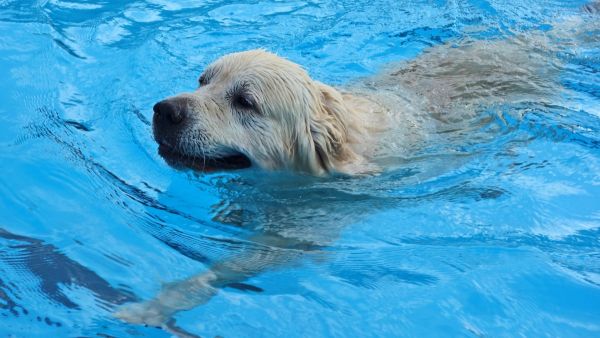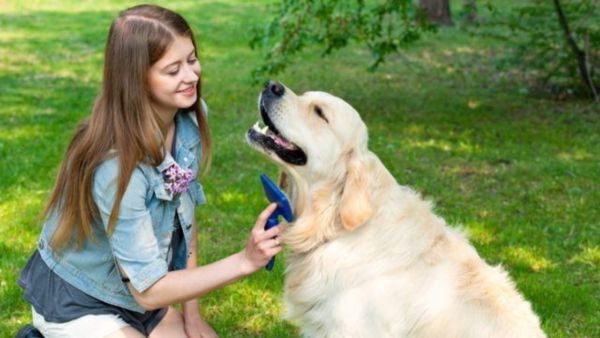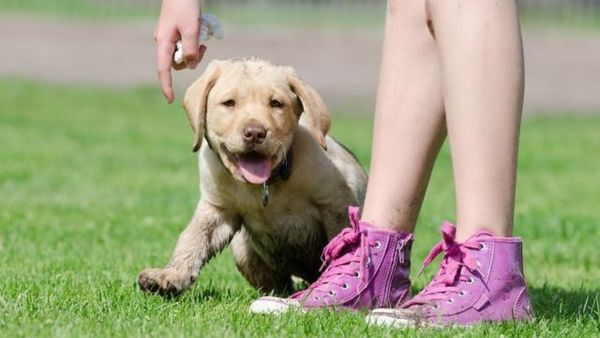
Labrador Retrievers are more than just adorable—they’re energetic, loyal, and among the most popular dog breeds in the world. Their playful personality and affectionate nature make them a top choice for families. But while Labs bring love and fun, they also come with unique challenges. Whether you're a firsttime pet parent or switching breeds, it's essential to understand what raising a Labrador really involves. From their exercise demands and shedding issues to training, diet, and health concerns, this guide breaks down everything you need to know before bringing one home. Read on for 8 mustknow facts that every future Labrador owner should understand—because choosing a dog isn’t just about looks, it’s a longterm emotional and physical commitment.
1. Labradors Need Tons Of Exercise Every Day

Labradors are packed with energy and require at least 60-90 minutes of daily exercise. Always remember, that a tired Lab is a happy Lab. They are not the kind of dogs that will laze around all day. Think long walks, runs, hikes, swimming sessions, and games like fetch. If they don't get their daily dose of physical activity, Labs can become restless, anxious, and destructive, often chewing furniture or barking excessively. If you're someone who leads a busy lifestyle or live in a small apartment without access to open spaces, it could be difficult to meet their needs. This breed is best suited to an active owner who can provide them with regular physical and mental engagement.
2. They’re Natural Shedders

Labradors are year-around shedders, with two major shedding seasons, spring and fall. Be prepared for dog hair on your clothes, furniture, car seats, and even in you morning tea. Weekly brushing isn't enough for this breed, you need to brush them about 3-4 times a week. With labradors as pets, investing in a powerful vacuum is essential as your home will need regular cleaning. Their coat is easy to manage as compared to some long-haired breeds, but the volume of sheeding can surprise their owners. Bathing them once a month with a coat-friendly shampoo may help in minimising the shedding. If you have pet allergies or want your home spick and span, keep this in mind before committing.
3. Labs Are Extremely Friendly

Labradors are sweet, sociable, and people-loving. They usually get along well with kids, other pets, and even strangers. This makes them one of the best dog breeds for families, but it also means they lack natural guarding instincts. If you want a dog for protection or territorial alerts, Labs may not be ideal. This breed is more likely to wag their tail at a stranger than bark at them. They have a friendly nature which makes them the perfect therapy dogs, emotional support animals, and companions for first-time dog owners. Their overexcitement can sometimes lead to jumping anf licking, if they're not trained at the early stages. Socialisation from a young age ensures that Labs channel their friendliness into calm behaviour.
4. They’re Prone To Obesity

Labradors love food, so make sure food isn't left unattended with them. If left with food, they'll eat until they're sick. This makes obesity a common issue, leading to joint pain, heart problems, and even a shorter lifespan. Portion control is extremely crucial for Labradors. It's extremely important to consult your vet for a Labrador-specific feeding chart, as their requirements vary by age and acitivity level. Avoid overfeeding of treats or human food. You can use slowfeeds or food dispensing toys to control their habit of fast eating and promote mental stimulation. Combining a high-protein, low-fat diet with daily exercises result in a healthy weight with a long-living and happy companion.
5. Training A Labrador Is Easy

Labradors are considered as an intelligent, obedient and eager to please breed. This makes them one of the easiest breeds to train. Early training is essential, so start from the day you bring one home. Focus on basic commands like sit, stay, come, and more. For an easier and effective training, use positive reinforcement like treats, praise, toys, and avoid harsh corrections. Labs respond best to kind and consistent handling. Lack of training can lead to habits like pulling on the leash, jumping, or chewing. If you're consistent, Labs can even learn advanced tricks, therapy work, and agility, that too quickly. The owners can consider puppy training classes to help your fur baby socialise with other dogs and humans.
6. They Need Mental Stimulation

Physical exercise alone aren't enough for your Labs. They're highly intelligent dogs who crave mental challenges. Without brain stimulation, Labs can become bored, anxious, and destructive. New tricks, hide-and-seek games, scent trails, and interactive toys are some of the great ways to keep their minds sharp and active. These activities are important especially if you're out for long hours. Teaching them new commands or involving them in household activities like fetching newspapers or closing doors can give them a job to do. A Labrador that's mentally stimulated is less likely to chew your shoes and furniture.
7. Common Health Problems In Labradors You Should Watch For

Before adopting, you must be aware of the common health risks that the breed might suffer from. Labs are prone to hip and elbow dysplasia, progressive retinal atrophy, ear infections, and obesity related diseases. They love swimming and their floppy ears make ear cleaning a necessity. Annual vet checkups, vaccinations, and early screening for joint issues are vital. Be cautious with excessive jumping or stair climbing in young Labs, as their joints are still developing. You may also provide joint supplements to you pet after consulting the vet and always watch for signs of pain or limping.
8. Labrador Puppies Grow Fast

The Labrador puppy phase can feel like a whirlwind. This breed grows rapidly. What looks like a cuddly 5kg pup can quickly become a 40kg adult in just 12 months. While Labradors are teething, they'll chew on everything, shoes, furniture, wire, and even hands. It's essential to puppy-proof your home before they arrive. Provide safe, durable chew toys to redirect their chewing instinct. Frozen carrots, rubber toys, and rope chews work well. Training and teething go hand in hand during this phase, and your patience now will shape their future behaviour.
-
Videos: Massive Traffic Snarls On Sinhagad Road, Chandani Chowk, Warje; Ambulance Stuck In Jam Near Dhayari Phata In Pune

-
Delhi HC dismisses plea by actor Jacqueline Fernandez to quash money-laundering case against her

-
A new book suggests ways for professionals to develop AI literacy to thrive in an AI-first world

-
OPSC ACF/ Forest Ranger PST date 2025 released; admit cards from July 9

-
Arsenal reach surprise summer transfer agreement
